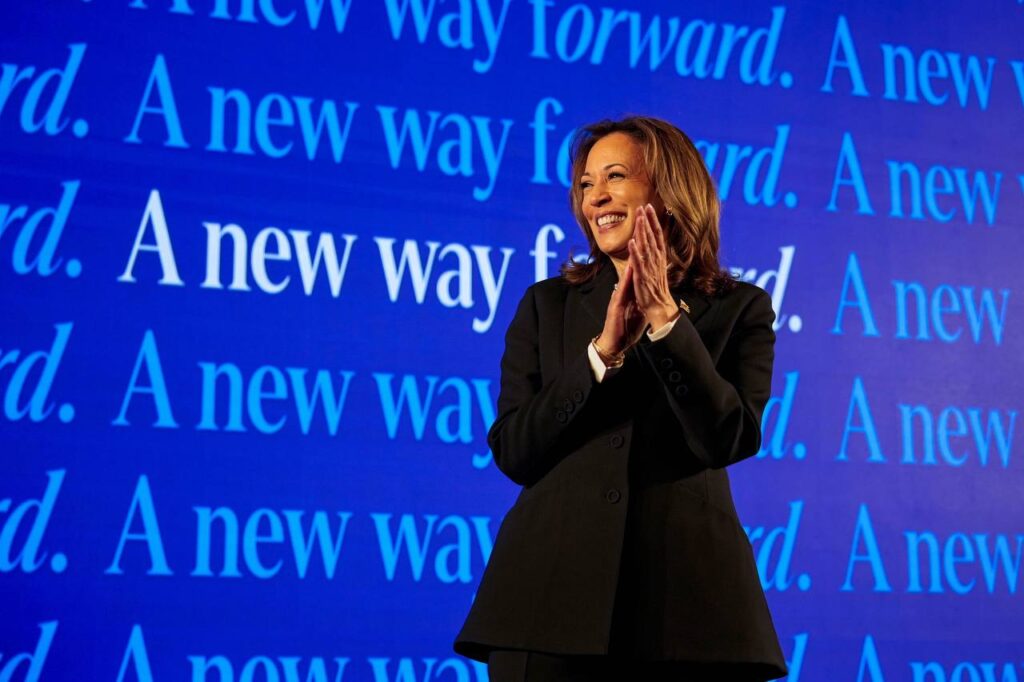CAN HARRIS SUCCEED WHERE CLINTON FAILED?
September 12, 2024
All elections are unique, and the Democratic Party's 2016 and 2024 presidential campaigns, led by Hillary Clinton and Kamala Harris, respectively, are no exception. While both women share the distinction of running for the nation's highest office on the Democratic ticket, their individual circumstances, backgrounds, and contexts differ significantly. Two constants, however, are the presence of Donald Trump as their opponent and their gender.
Despite distinct campaign landscapes, Hillary’s 2016 experience offers valuable lessons for Kamala Harris. By examining the similarities and differences between their campaigns, Harris can glean insights to inform her strategy and overcome potential hurdles. As fellow female pioneers in politics, Harris can thoughtfully consider Clinton’s triumphs and setbacks, refining her approach to shatter the lingering glass ceiling for females in their quest to be the first to be the President of the United States (POTUS). Does gender play a role in the lack of a female POTUS?
Moving beyond the debate about racial barriers in the presidency, shattered by Barack Obama’s historic 2008 victory, this inquiry focuses on the persistent question: “Can a woman ascend to the presidency?” Obama’s win proved a person of color can occupy the Oval Office, yet the gender barrier remains unbroken. The question now is: “Will Kamala Harris be the trailblazer to finally shatter this barrier?
While the USA still has room for improvement, women in America enjoy relatively robust political and economic rights, surpassing many other nations. However, a woman occupying the highest political office remains an elusive exception. Notably, Kamal Harris broke the glass ceiling as the first female Vice President in the country’s nearly 240-year history. Despite women’s progress in governorships, senatorial and congressional roles, the presidency remains a singular barrier. Interestingly, research by Burns et al. (2018) observed that “in the middle of the first decade of the twenty-first century, the persistent gender gap in US political participation more or less vanished, fulfilling one part of the aspiration of women’s suffrage”. Thus, the lack of female presidents cannot be attributed to the participation gap, indicating that more complex factors are at play.

Teelle, D. L., Kalla, J., & Rosenbluth, F. (2018) investigated three key factors that could influence women’s chances of winning elections. They were outright hostilities, double standards and double binds. Outright hostilities refer to discrimination and prejudice against women in politics just because they were women. Double standards implies that both men and women were held to different standards when it came to politics. While finally, double bind, occurs when desired traits or expectations create a bigger burden for women.
The researchers observed that women’s representation was not significantly affected by outright hostility or double standards, as there was no evidence to suggest these factors played a role.
This indicates that women can run for office and expect to win, without the threat of discrimination based solely on their gender. Also, women can be assured that they will not be held to different standards as men. However, double binds did have an impact on women’s representation. Women seeking political office often face expectations to maintain certain profiles, such as being married and having children. This expectation can conflict with the demands of political life, which often requires significant time and commitment, thereby creating additional challenges for women. This is a difficult situation to discuss, however, in the case of Kamala Harris just as the case of Hilary Clinton, both women proved that they could balance both expectations where they were wives and parents. This factor had not affected them since both women held various political roles, with Clinton being the Secretary of State and later winning the Democratic Party Nomination. Kamala on the other hand, has held various elected positions as District Attorney of San Francisco, Attorney General of San Francisco and Senator for District 17 in California. Thus, the double binds do not affect her.
Despite these observations, other studies have revealed that sexism and anger was a mobilizing force for Trump’s victory in 2016, contributing to Clinton’s unsuccessful bid for the white house. Valentino, N. A., Wayne, C., & Oceno, M. (2018) observed that controlling for other factors such as “authoritarianism, partisanship and predisposition” sexism and anger played a role in the mobilization of sexist voters to support Trump.
Thus, while Kamala Harris faces some of the same challenges as Hillary Clinton, the electoral context appears different this time. Harris’ candidacy is not directly comparable to Clinton suggesting that while sexism and anger especially played a key role in Trump’s victory, they may not play decisive role in the current political landscape. Thus, Harris could probably succeed where Clinton failed.
Reference List
Burns, N., Schlozman, K. L., Jardina, A., Shames, S., & Verba, S. (2018). What’s Happened to the Gender Gap in Political Participation? In H. J. McCammon & L. A. Banaszak (Eds.), 100 Years of the Nineteenth Amendment: An Appraisal of Women’s Political Activism (pp. 1-49). Oxford University Press. doi: 10.1093/oso/9780190265144.001.0001
Teelle, D. L., Kalla, J., & Rosenbluth, F. (2018). The ties that double bind: Social roles and women’s underrepresentation in politics. American Political Science Review, 112(3), 525-541. doi: 10.1017/S0003055418000217
Valentino, N. A., Wayne, C., & Oceno, M. (2018). Mobilizing sexism: The interaction of emotion and gender attitudes in the 2016 US presidential election. Public Opinion Quarterly, 82(Special Issue), 799-821.
